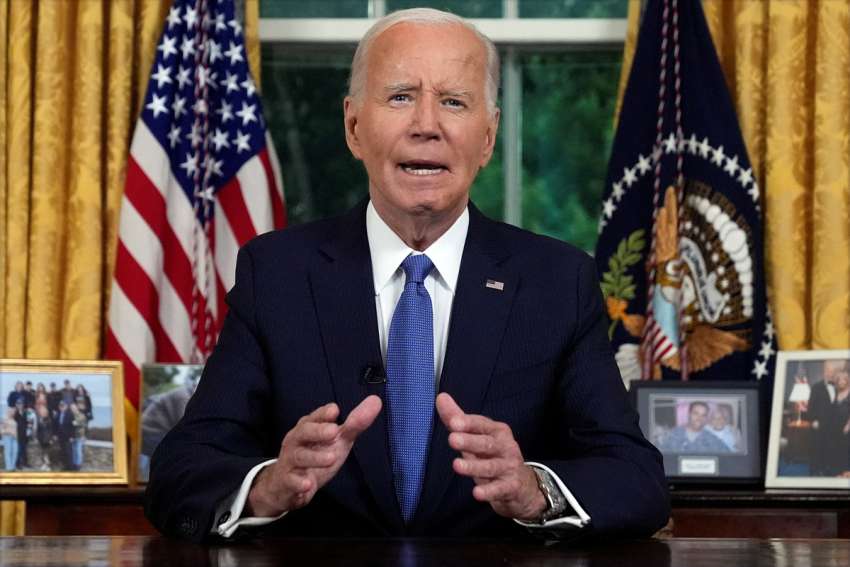Biden's historic announcement that he would end his reelection bid on July 21 brought to an end several weeks of speculation about his political future after he delivered a faltering performance at a June 27 debate, that polls showed cemented voters' concerns about the 81-year-old president's physical and mental stamina, in both his viability in the November election and his ability to serve another four-year term in the White House.
Arguing the nation is at an "inflection point," Biden cast his decision as one between personal ambition and protecting American democracy.
"I revere this office," he said. "But I love my country more."
Biden argued that while he initially felt that his goals for a second term merited a reelection bid, he would instead offer his support to Vice President Kamala Harris to succeed him as the Democratic Party's nominee for president.
In apparent acknowledgment of concerns about his age, Biden argued, "there is a time and a place for long years of experience in public life. There's also a time and a place for new voices. Fresh voices. Yes, younger voices. That time and place is now."
In a nod to his legacy, Biden highlighted what he argued are the achievements of what will be his only term in the White House, including investments in infrastructure and manufacturing in 2021's Bipartisan Infrastructure Law; the Bipartisan Safer Communities Act in 2022, which was the first gun violence prevention law passed by Congress in nearly 30 years; as well as efforts to lower some prescription drug costs and end the COVID-19 pandemic.
Biden, who was previously the first Catholic vice president, later became the second Catholic president in U.S. history, has sometimes found himself at odds with the U.S. bishops over some of his administration's policies, most notably on abortion. But he has also won some bishops' praise on refugee and climate-related policies, as well as mixed responses to his policies on immigration.
The announcement signals the end of a political career in Washington spanning decades. Biden represented Delaware for 36 years in the U.S. Senate, first elected at age 29, before his election as vice president in 2008, a role he held for two terms during former President Barack Obama's administration. In 2020, he was elected as the 46th president of the United States.
Biden said it "has been the privilege of my life to serve this nation for over 50 years."
"Nowhere else on Earth could a kid with a stutter -- from modest beginnings in Scranton, Pennsylvania, and Claymont, Delaware -- one day sit behind the Resolute Desk in the Oval Office, the President of the United States, but here I am."
"I've given my heart and my soul to our nation, like so many others," he added. "I have been blessed a million times in return with the love and support of the American people. I hope you have some idea how grateful I am to all of you."
A July 22 editorial in L’Osservatore Romano editorial praised Biden for the "noble choice" for ending his bid, arguing he put the country before his own hold on power.
"Politics can be very fruitful even in short periods: Joe Biden has 'only' 6 months left before the handover on January 20, 2025," the editorial by Alessandro Gisotti said. "No longer having to make decisions exclusively in view of the election campaign, it is to be hoped that the US president will give life to new courageous and creative initiatives to achieve those objectives that will define his legacy in history, particularly in foreign policy, starting from the end of the conflicts in Ukraine and the Middle East."
Harris is expected to secure the Democratic Party's nomination in August. The Democratic National Convention is scheduled to take place Aug. 19-22.


